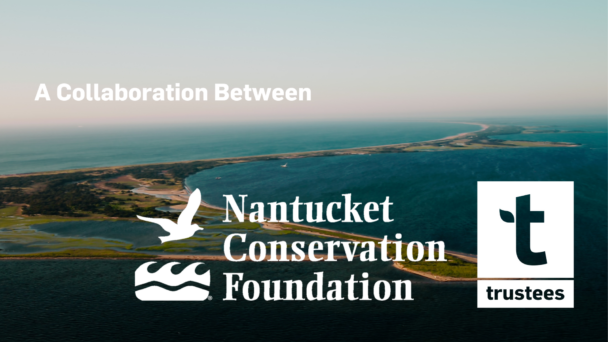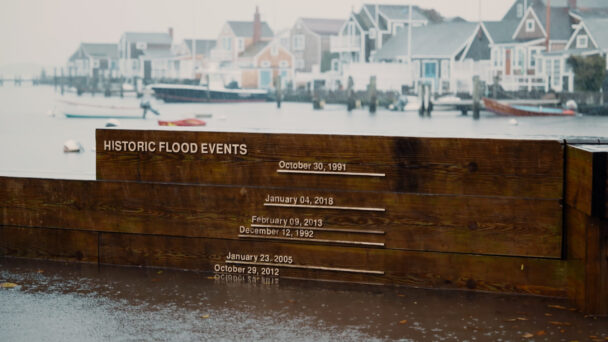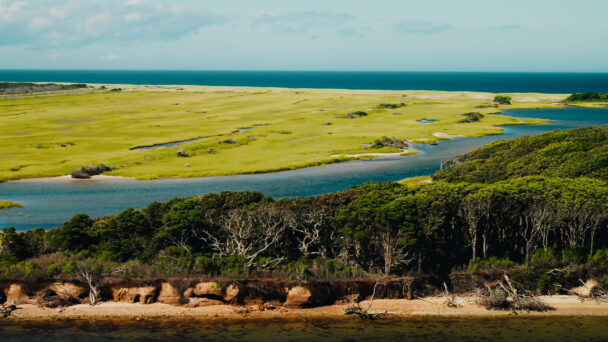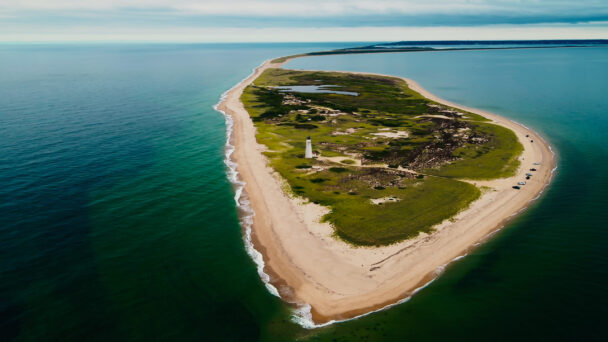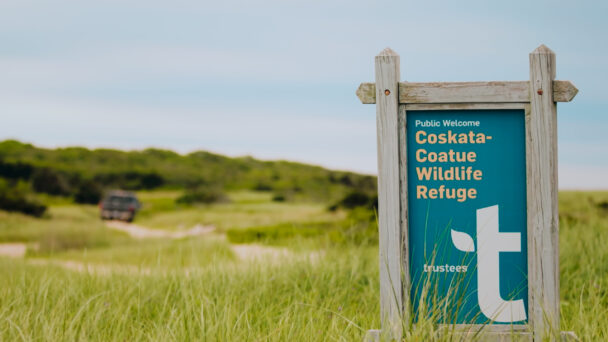Coskata-Coatue: A Refuge on the Edge
(c) Yellow Productions
The Trustees and Nantucket Conservation Foundation are collaborating to understand and enhance the resilience of the Coskata-Coatue Wildlife Refuge, a critical barrier beach ecosystem on Nantucket Island, MA. These two organizations are committed to ensuring this jointly owned treasure remains a place for humans and wildlife to thrive for many generations.
Read our most recent blog detailing the proposed solutions to increase resiliency at Coskata-Coatue Wildlife Refuge. We are jointly investigating the way that climate change is affecting the refuge and its future. NCF and The Trustees are embarking on a new project with the aim of using nature-based solutions to increase resilience on the refuge, while maintaining long-term public access.
We strongly believe that the public is an important part of the process of protecting this spectacular landscape. Please join us for our next virtual community meeting on May 27 at 6pm.
Catch up on the last community meeting
With the effects of climate change already threatening Coskata-Coatue, what can be done to protect this refuge on the edge?


What's At Risk?
Sea levels are rising, and New England faces a more accelerated rate of sea level rise than anywhere else in the world. The Island of Nantucket, 30 miles south of Cape Cod, is particularly vulnerable to rising sea level. Dramatic flood impacts to our historic downtown, our infrastructure, and our unique natural areas are expected by the year 2050.
The extensive Coskata-Coatue Wildlife Refuge, owned and managed in parallel by the Trustees and the Nantucket Conservation Foundation, serves as a critical barrier beach ecosystem. The refuge creates Nantucket Harbor, provides amazing recreational exposure to wild and natural areas and currently protects the historic downtown and harbor of Nantucket from larger storms and flooding.
In this documentary, The Trustees and the Nantucket Conservation Foundation explore the changing landscape of the Coskata-Coatue Wildlife Refuge and its ecological, recreational, and cultural importance for the island of Nantucket. With the effects of climate change already threatening Coskata-Coatue, what can be done to protect this refuge on the edge?
Watch Our Documentary
Support Our Work
360 Tour
Podcast Episode 1
Podcast Episode 2
NCF: Coatue
History
Refuge FAQs
Earlier Phases
The first phase of the grant-funded project launched in early 2021, to develop a volunteer-led beach profiling monitoring system, design initial beach resiliency concepts to bolster the Refuge’s resilience for the next 10-20 years, establish a partnership to conduct a coastal wave and sediment study, and prepare for potential longer-term projects.
Also part of Phase I was the production of two podcast episodes and a 360-degree panorama video tour, to share both the beauty and challenges that are unique to this special place.
The second phase of this project saw the implementation of coastal wave sediment studies and resilience intervention work as well as the establishment of a coastal resilience fund, followed by robust community outreach, education, and engagement in phase III. Additionally, The Trustees sponsored a three-year Coastal Research Internship with Boston University to conduct a coastal wave-sediment study of the Coskata-Coatue barrier beach system to understand how climate change will impact beach morphology, vulnerability to breaching and harbor impacts, shoreline change, and sediment movement.
